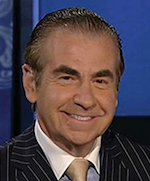|
|
Harvey Weinstein, although apparently beloved by his dear departed mommy, is nonetheless a pathetic, pitiless pig likely headed to the slammer.
So, too, Matt Lauer has always been a holier-than thou phony baloney and John Conyers a race-baiting reprobate.
And all the other sleaze balls swept up in the nation’s sexual-harassment tidal wave — Kevin Spacey, Mark Halperin, Harold Ford, Glenn Thrush, Al Franken, Bill O’Reilly, Roger Ailes, et al — are similarly lost causes.
Even poor, old Charlie Rose for goddsakes!
The fact is, no amount of public relations assistance can help any of them. Their reputations — not to mention their job prospects — are toast, bludgeoned by a “guilty until proven innocent” phenomenon that continues to take down high-flying swells at warp speed.
And any public relations counselor tempted to take the money and work for one of these lowlifes — are you listening Michael Sitrick? — risks ruining his own reputation in the process. That, in fact, is exactly what happened when Gloria Allred’s daughter Lisa Bloom, erstwhile defender of the sexually harassed, suddenly reversed field and signed up to work for Weinstein. (It didn’t end well.)
But what about Garrison Keillor?
What if the homespun NPR "A Prairie Home Companion" creator is telling the truth? Why can’t public relations help him recover his good name?
The Keillor case seems different — and more suspect — than any of the others.
Directly on the heels of the loutish Lauer revelations, Minnesota Public Radio sheepishly announced that it was cutting ties with its most prominent — not to mention, only — superstar due to allegations of inappropriate sexual behavior by someone who worked with Keillor. MPR further announced — without a trace of irony — that in addition to firing Mr. Keillor, it had also hired an outside law firm “to investigate the allegations.” How reassuring.
Unlike the panoply of perverts to which his name was instantly added, Mr. Keillor didn’t hide from the embarrassing news but rather responded immediately, lamenting to the Associated Press that the real story was “more interesting and more complicated than the version MPR heard.”
And then, eschewing the standard crisis communications advice to keep one’s mouth shut, he elaborated to the Minneapolis Star Tribune that the firing stemmed from his once touching a co-worker’s bare skin.
“I meant to pat her back after she told me about her unhappiness and her shirt was open and my hand went up it about six inches,” he said. “She recoiled. I apologized.”
“I sent her an email of apology later, and she replied that she had forgiven me and not to think about it. We were friends. We continued to be friendly right up until her lawyer called.”
And that, according to Mr. Keillor, was the rest of the story. All of it.
How quaint. An accused — and therefore, summarily fired — “sexual harasser” refusing to hide behind handlers or silence and instead speaking out, simply and matter-of-factly in his own defense.
In response to its former star’s explanation, an obviously uncomfortable MPR cryptically told the AP that it had received “a formal complaint from an individual that includes multiple allegations related to Garrison’s behavior.”
And there the matter rests, with Garrison Keillor, rightly or wrongly, lumped in by a lazy media with all the degenerates picked off in the sexual harassment rush to judgment.
So, what can the beloved, down-home humorist do to escape the stigma of sexual harasser?
Here’s what I’d tell him.
• First and most important, you have to be telling the truth that there was one incident with one co-worker. If that’s not the whole truth, then just as Judge Moore’s accuser faked the year book inscription, you’ll be found out and your case will be lost.
• Second, write an op-ed for The New York Times that lays out the whole story and discusses the fundamental unfairness of what has become — at least in your case — a mad dash to find celebrity fall guys to fit a salacious narrative.
Ironically, Mr. Keillor wrote an op-ed in defense of Franken for the Washington Post Syndicate (from which he was also fired) just a few days before his own downfall.
• Third (even though you’ll hate it), follow the Times’ op-ed with a sit down TV interview that allows you to explore what happened in an objective and fair-minded context. That means choosing an “old-school” interviewer, more interested in getting to what really happened than imposing his own “brilliance” on the viewers; somebody like Shepard Smith at Fox News.
This simple public relations action plan might be all Garrison Keillor needs to right his reputational ship.
Will he take this path? Probably not.
Mr. Keillor, as he demonstrated weekly for nearly five decades on the radio, is, at base, a stoic Norwegian, resigned to accepting whatever fate befalls him without putting up much of a fuss. As he wistfully told a reporter for the Berkshire Eagle, "I’ve worked extremely hard on a show that I love for almost 50 years, and somebody else can torch it in one morning, and so it’s all gone."
Maybe not, if he’s willing to try a little strategic PR to help people see the light.
***
Fraser P. Seitel has been a communications consultant, author and teacher for 40 years. He may be reached directly at [email protected]. He is the author of the Prentice-Hall text The Practice of Public Relations, now in its eleventh edition, and co-author of Rethinking Reputation and Idea Wise.

 Fraser Seitel
Fraser Seitel








 Have a comment? Send it to
Have a comment? Send it to 
No comments have been submitted for this story yet.